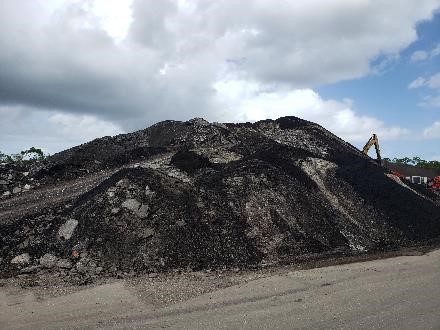Comprehensive analysis of Reclaimed Asphalt Pavement leachability and toxicity
Reclaimed Asphalt Pavement (RAP) is one of the most heavily recycled materials in the United States; Florida is no exception. Like most states, Florida has an interest in recycling RAP to minimize the costs and environmental impact associated with the creation and maintenance of asphalt paved roads. However, Florida, along with other states, have voiced concern regarding the potential environmental issues associated with constituents leaching from RAP.
In previous work with the National Asphalt Pavement Association (NAPA), our team conducted a comprehensive review of existing RAP leaching literature. The review identified extensive knowledge gaps in understanding the types of constituents present in RAP, their mobility from RAP, and their potential toxicity. The objective of this work is to address these knowledge gaps and ensure proper management of RAP in the future, preventing risks to human and environmental health.
This project is funded by the Hinkley Center for Solid and Hazardous Waste Management
Project Scope: HC21Scope

Progress Reports
Progress Report 1: HC21PR1
Progress Report 2: HC21PR2
Progress Report 3: HC21PR3
Progress Report 4: HC21PR4
Technical Advisory Group Meetings
HC Kickoff Meeting Zoom Recording
HC Closing Meeting Zoom Recording
Publications